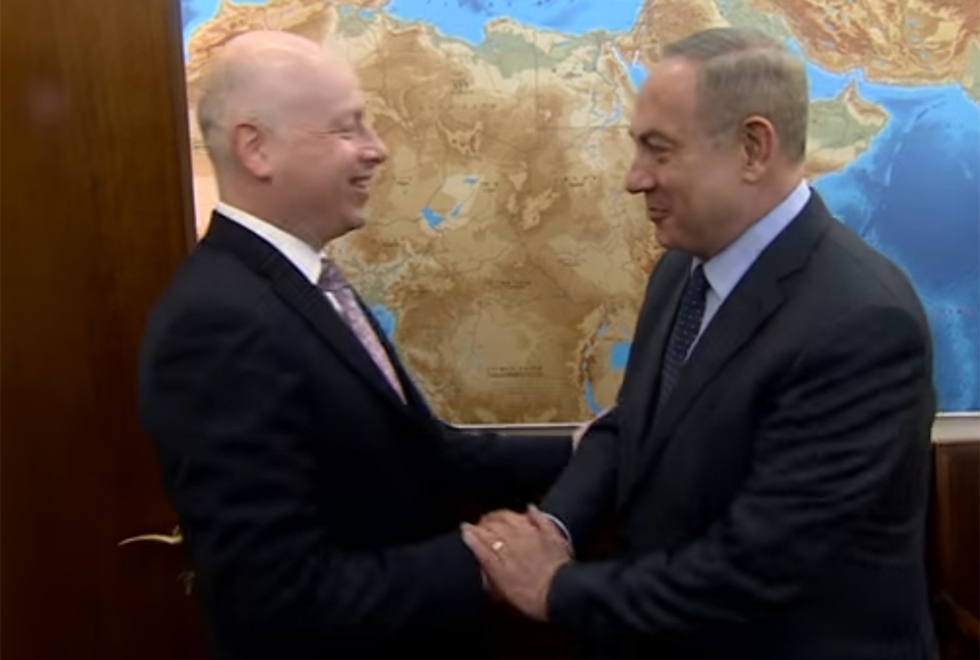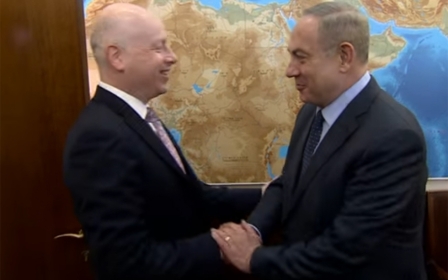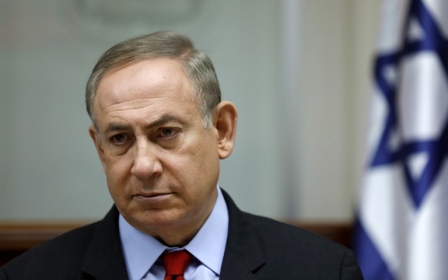Trump envoy Greenblatt meets illegal Israeli settlers

By Jonah Mandel
A top adviser to US President Donald Trump met Israeli settler leaders Thursday in an unusual move that may raise fresh concerns over prospects for a two-state solution to the Israeli-Palestinian conflict.
The US embassy confirmed the talks between Jason Greenblatt and Israeli settlers took place in Jerusalem as part of the White House official's wide-ranging meetings this week.
The Yesha Council, the main Israeli settler organisation, said it was believed to be the highest level official meeting ever for the organisation with a US administration.
The meeting was attended by Yesha leaders Oded Revivi and Yossi Dagan.
"Representatives from Yesha have met with [former US secretary of state] John Kerry and others on the sidelines of events, but we have not had official meetings like this," a spokesman said.
"The previous administration never met like this."
A US government official said "the three discussed the importance of moving forward, in a tangible way, towards peace between Israelis and Palestinians".
Speaking on condition of anonymity, the official also said Greenblatt "reiterated to them President Trump's previously expressed views regarding settlements" - a reference to Trump's call last month for Israel to "hold back on settlements for a little bit".
Israeli settlements in the occupied West Bank are considered illegal under international law and major obstacles to peace as they are built on land the Palestinians see as part of their future state.
Israeli settlement expansion has been the subject of harsh international criticism, with many warning it is gradually eating away at prospects for a two-state solution, the basis of years of negotiations.
Greenblatt, Trump's special representative for international negotiations, met a range of people on both the Palestinian and Israeli side during his visit this week, including Israeli Prime Minister Benjamin Netanyahu and Palestinian President Mahmoud Abbas.
‘Advancing a genuine peace’
Abbas and Trump spoke for the first time by phone last week, and the Palestinian leader said on Thursday that he believed peace was possible.
"Our hope is that those contacts result in the end in a peace that is led by the United States and the international community," Abbas told journalists in Ramallah.
Greenblatt met Netanyahu again on Thursday.
A joint statement said they discussed "advancing a genuine and lasting peace between Israel and the Palestinians that strengthens the security of Israel. Towards that end, in addition to discussing how to achieve progress in the coming months, they discussed concrete measures that could help support and advance Palestinian economic development."
It said they also made progress on the issue of settlement construction. The US official said an agreement had not yet been reached.
Greenblatt's visit came after Trump cast uncertainty over years of international efforts to foster a two-state solution to the conflict, when he met Netanyahu at the White House last month.
At that meeting, Trump broke with decades of US policy by saying he was not bound to a two-state solution to the conflict and would be open to one state if it meant peace.
The peace process has been deadlocked since April 2014.
New settlement pledge
Netanyahu had said earlier on Thursday that he was in discussions with Trump's administration on ways to move ahead with settlement construction.
He also reiterated he intended to build a new "community" for residents of a wildcat Jewish outpost in the occupied West Bank known as Amona, evacuated under court order in February.
US President Barack Obama's administration frequently criticised Israel over settlement construction.
Obama's White House also declined to veto a UN Security resolution in December condemning Israeli settlement-building, angering Netanyahu.
Greenblatt's visit to the region marks the Trump administration's dive into the decades-old Israeli-Palestinian conflict, which the new US president said he intends to resolve.
Many have questioned Trump's ability to pull off the feat that stumped previous administrations, especially with newly appointed advisers such as Greenblatt having no experience in Middle East diplomacy.
An Israeli analyst agreed that Greenblatt's meeting with settler leaders was unusual, but said he did not disagree with it.
"I think what Jason Greenblatt is doing is to consult with all kinds of political forces," Eytan Gilboa, an expert on Israeli-US relations with the Begin-Sadat Centre for Strategic Studies, told AFP.
"I think it's a good thing he met them. He could have met Hamas as well as far as I'm concerned to see what they think about negotiations with Israel," he added, referring to the Islamist movement that runs the Gaza Strip.
Last week, British foreign minister Boris Johnson met with settlement watchdog Peace Now during a visit to Israel and the Palestinian territories.
Israeli settler leaders had also called for Johnson to meet with them, but a British embassy official said the brief visit allowed no time to do so.
New MEE newsletter: Jerusalem Dispatch
Sign up to get the latest insights and analysis on Israel-Palestine, alongside Turkey Unpacked and other MEE newsletters
Middle East Eye delivers independent and unrivalled coverage and analysis of the Middle East, North Africa and beyond. To learn more about republishing this content and the associated fees, please fill out this form. More about MEE can be found here.




